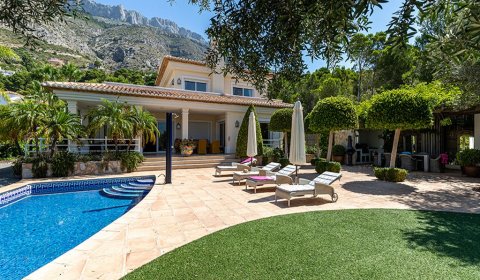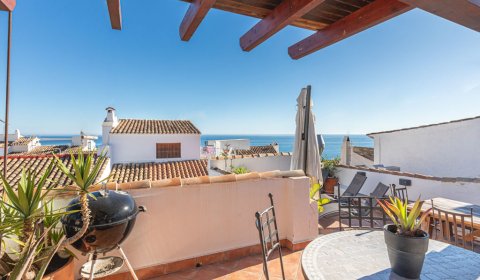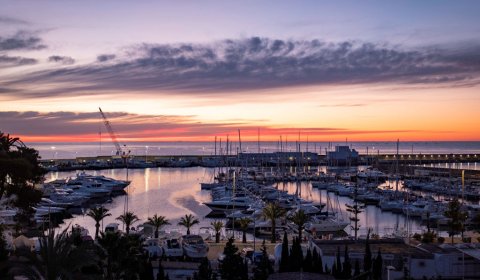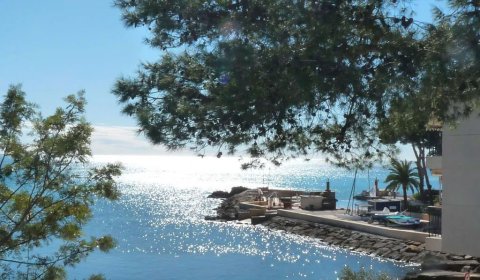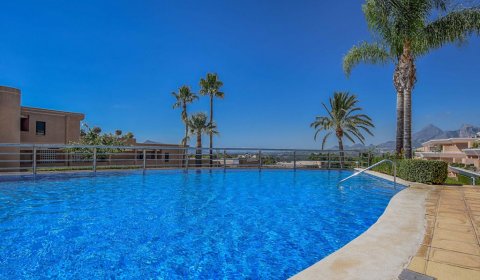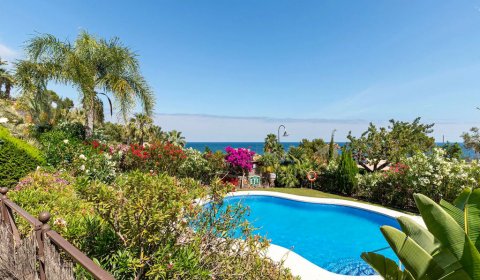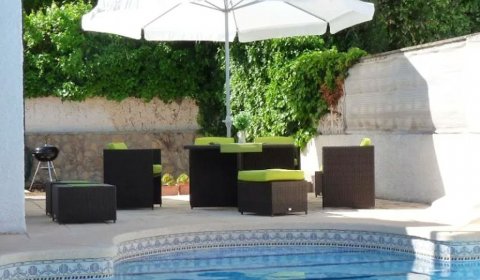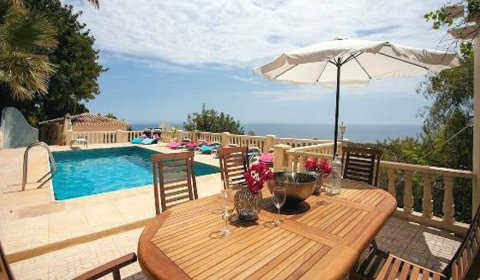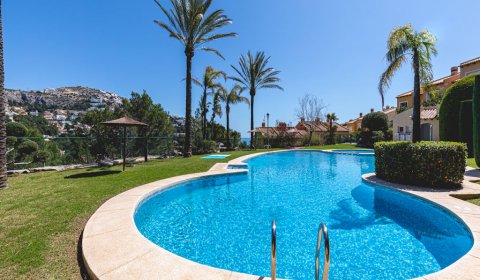Calpe – Family and Active Holidays on the Costa Blanca
Calpe (Calp) is one of the most popular destinations on the Costa Blanca, ideal for families, couples, and active travelers. The town is spectacularly located between the Mediterranean Sea and the iconic Peñón de Ifach, a 332-meter-high rock formation rising from the sea. Calpe boasts two excellent sandy beaches stretching a total of 11 km: Playa de Levante to the north, bordering Benissa and Moraira, and Playa del Arenal to the south. Both beaches are certified with the EU Blue Flag for cleanliness, safety, and excellent facilities.
Holiday Accommodation in Calpe
Enjoy an unforgettable holiday in villas, apartments, and holiday homes in Calpe, just a few steps from the beach, nature, and local attractions. Whether you are planning a family vacation, a beach holiday, or an active break, Calpe offers the perfect combination of Mediterranean relaxation, diverse nature, and maritime charm.
⛳ Exclusive Villas & Apartments in Calpe – Costa Blanca
Charming Town with Maritime Flair
Calpe has around 15,000 inhabitants and is famous for its maritime traditions. Visitors can participate in the daily fish auction (Lonja) to bid for fresh fish and seafood, or enjoy them in excellent local restaurants. The old town, promenade, and surrounding neighborhoods such as Maryvilla, Canuta, Tossal de Cometa, Grand Sol, and Ortembach invite you to stroll, shop, and discover local cuisine. The iconic Peñón de Ifach is not only a nature park but also offers numerous hiking trails and viewpoints.
Climate, Nature & Sightseeing
Calpe’s iodine- and mineral-rich climate is ideal for people with rheumatism, asthma, cardiovascular issues, or skin problems. With an annual average temperature of 21 °C and around 300 sunny days per year, the region offers perfect conditions for beach days, water sports, and outdoor activities. The Peñón de Ifach Natural Park offers spectacular views, hiking trails, and unique flora and fauna. The salt flats of Calpe are home to numerous flamingos and provide special opportunities for nature observation.
The history of Calpe dates back to the Iberians and Romans. In the Middle Ages, the Peñón de Ifach and the Torre del Moli served as protection against pirate attacks. Today, the town combines historical, cultural, and modern holiday attractions.
Golf Courses near Calpe
- Club de Golf Ifach – 5 km, 18-hole championship course with sea views
- Don Cayo Golf – 10 km, 9-hole course suitable for beginners and advanced players
- Oliva Nova Golf – 40 km, 18-hole championship course in Oliva
- La Sella Golf (Denia) – 25 km, international 27-hole golf course
Day Trips & Surroundings
There are plenty of worthwhile excursions and attractions around Calpe. Particularly scenic is the coastal road connecting Calpe with Moraira and Benissa – a breathtaking route with spectacular views.
- Moraira – 10 km, picturesque coastal town with an idyllic harbor
- Benissa – 5 km, traditional villages, vineyards, and beautiful coves
- Javea – 25 km, historic old town and natural beaches
- Altea – 30 km, cultural highlights and charming old town
- Benidorm – 45 km, lively beachfront promenade and amusement parks
- Denia – 35 km, historic castle and ferry port
- Alicante – 110 km, sights, beaches, and airport
- Elche – 100 km, palm groves and historic old town
Nearest airports:
- Alicante-Elche – 110 km
- Valencia – 145 km
Hidden Gems & Local Favorites Costa Blanca
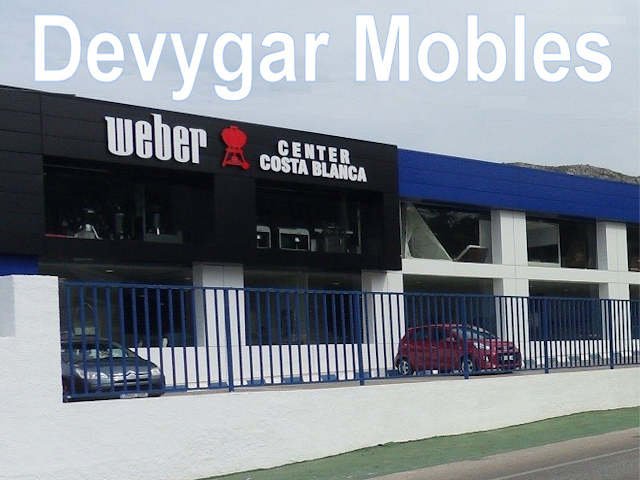
Your Home. Your Style.
Devygar Mobles
Where design meets comfort – make your home truly yours with Devygar Mobles.
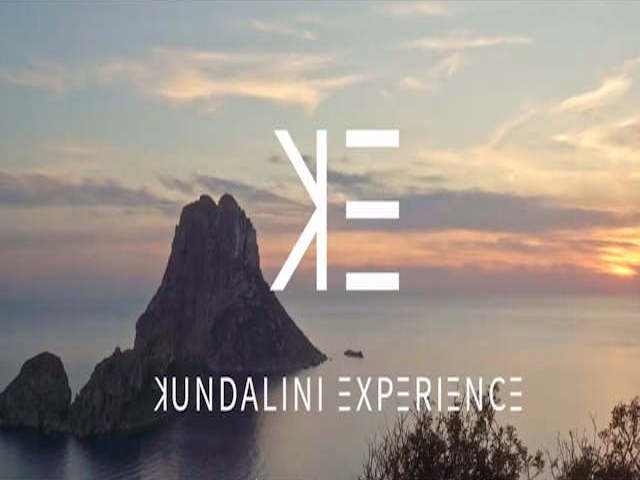
Reiki - Costa Blanca
Feel Energy, Live Harmony
Your path to inner balance – consciousness starts here.
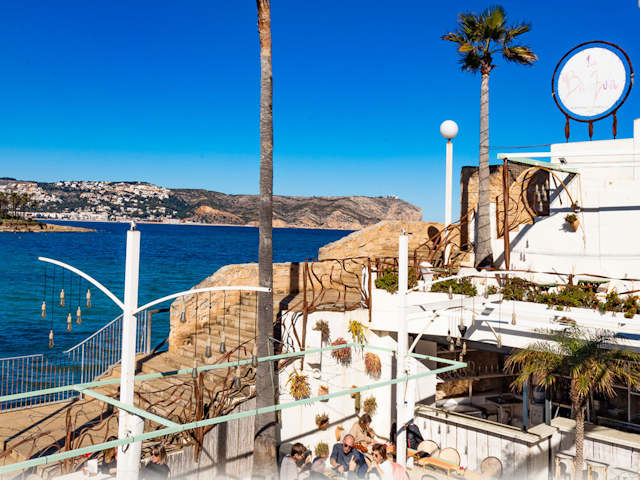
La Bambula – Mediterranean Joy in Xàbia
Savor authentic Mediterranean cuisine by the sea while enjoying stylish sunsets.
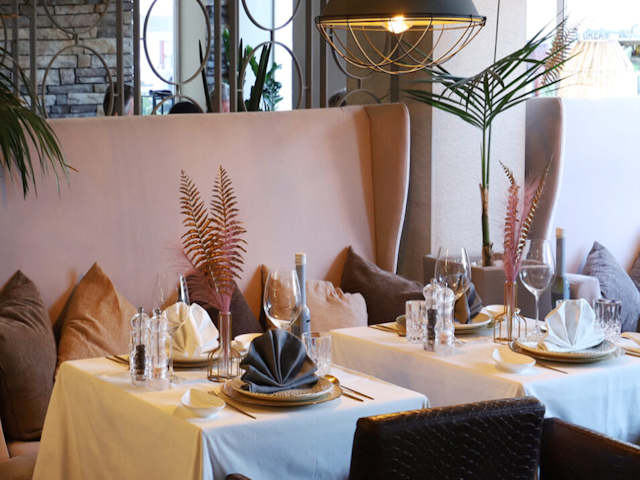
La dolce vita on your plate
Il Divo
Traditional Italian flavors meet modern elegance – a true taste of Italy in Moraira.
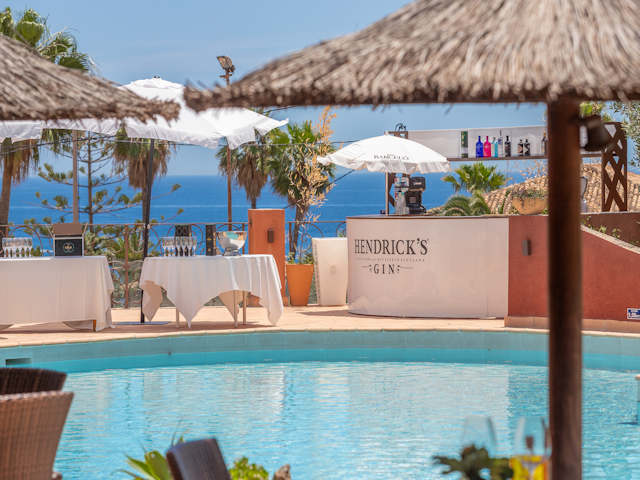
Restaurant Oscar in Calpe
Delight your senses with Mediterranean cuisine: fresh seafood, fish specialties & meat dishes.
💡 Your Ad Could Be Here!
